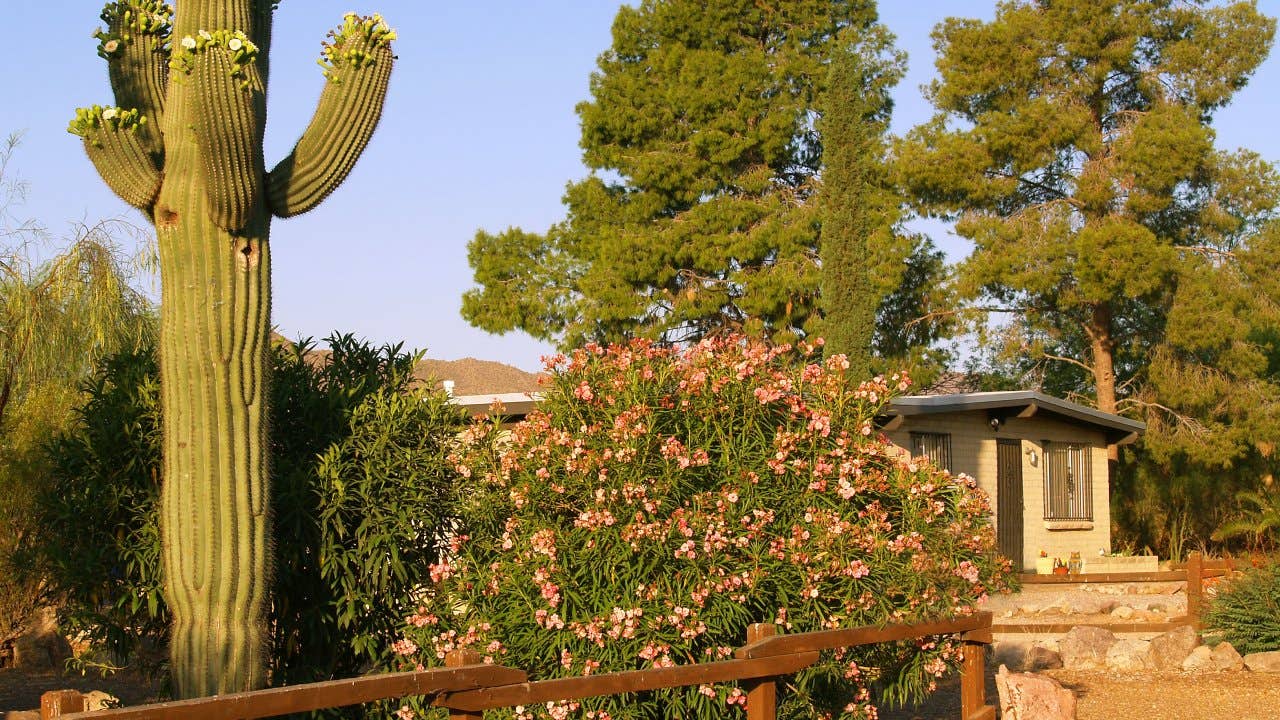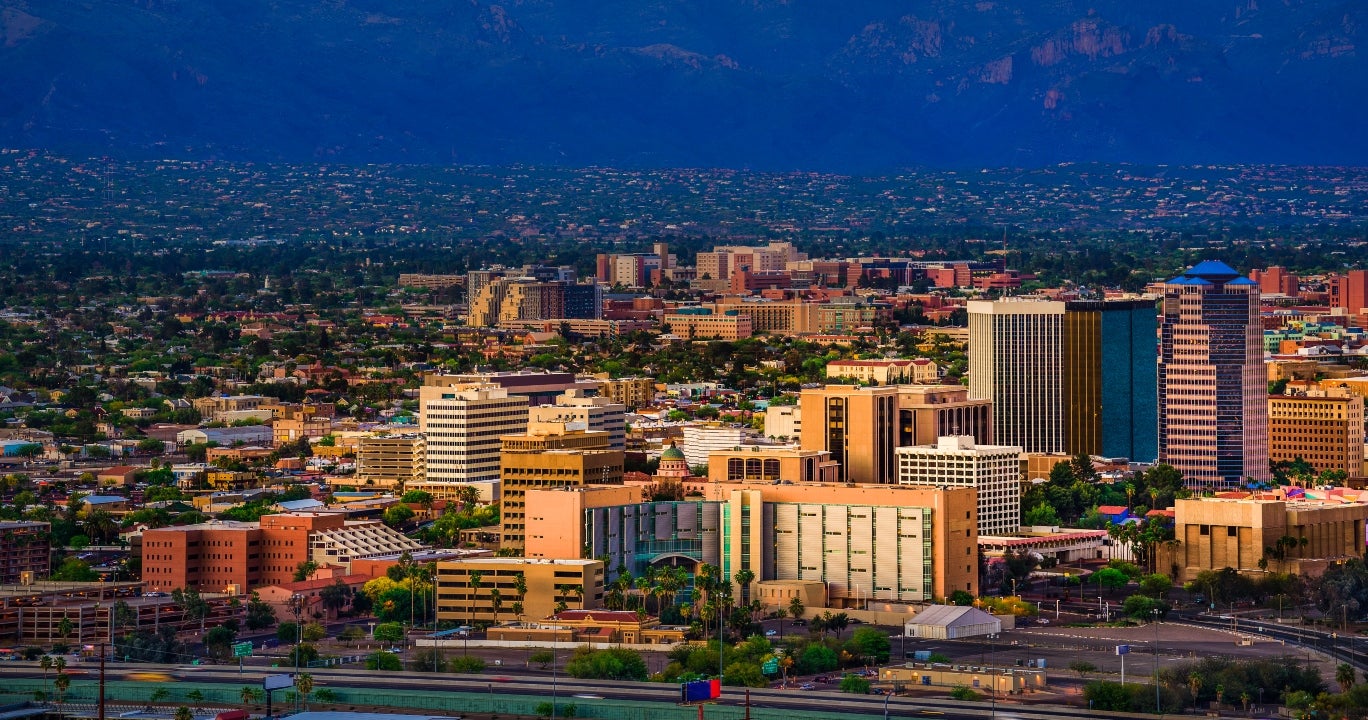Tucson, AZ housing market: Everything you need to know

Set within the sprawling Sonoran Desert, Tucson is the second-biggest city in Arizona (behind Phoenix) and is home to a growing community of college students, families and retirees. According to data from the University of Arizona, population growth in the Tucson metro area is outpacing several other popular Western cities, including Las Vegas and San Diego.
If you’re thinking of buying or selling a home in Tucson, you’ll want to get acquainted with the current real estate landscape. Keep reading to learn about the latest trends, statistics and predictions for the Tucson housing market.
Tucson, AZ housing market overview
Like much of the U.S., real estate prices in Tucson had been on the rise for years before falling slightly in the second half of 2022. The housing market now is relatively affordable: Redfin data indicates that the city’s median sale price in January 2023 was $310,000, which is quite a bit lower than the national median of $359,000 and also significantly lower than Arizona’s statewide median of $406,200.
Tucson housing trends and stats
- According to the Tucson Association of Realtors, as of January 2023, the median sale price of a single-family home in the city was $359,900. That’s an increase of 2.9 percent from the previous year, but still down from the all-time-high prices of mid-2022. And it’s right on target with the national median.
- Redfin data indicates that the sale-to-list ratio in Tucson was 97.7 percent at the end of January, which means that homes were selling about 2.3 percent below their listing price. A year earlier, the sale-to-list ratio was 99.8 percent.
- On average, homes spent 67 days on the market before being sold — up from 46 days in January 2022.
- The number of closed sales was down 41.3 percent year-over-year, with 481 sales in January 2023 vs. 820 in January 2022.
- For a new home purchase in Arizona, you can expect to pay around $4,701 in closing costs (including taxes), according to ClosingCorp.
Should you buy or sell in the Tucson housing market?
It can be challenging to know whether it’s the right time to buy or sell property. Here’s what to consider if you’re thinking about entering the market in Tucson.
If you’re a home seller
Toward the beginning of last year, Tucson sellers had a lot of things working in their favor: home prices were rising, and houses were flying off the market quickly. According to the Tucson Association of Realtors, there was just one month’s supply of homes for sale in January 2022 — a good indicator of a seller’s market. However, prices have been slowly sliding since June 2022, per Redfin. On top of that, rising mortgage rates have prompted many potential buyers to put their homebuying plans on hold.
So, what does this mean if you’re thinking about selling your Tucson home? On the plus side, while the housing inventory has increased, it is still firmly in seller’s market territory (a balanced market requires five to six months’ supply). Also, if you sell soon, you could avoid further pricing drops as the year goes on. Work with a local agent to develop a clear idea of how much your home is worth, so you can price it accordingly.
If you’re a homebuyer
Similarly, there are a few things to consider before buying a home in Tucson right now. Although prices have dropped since mid-2022, they’re up around 5 percent year-over-year. Plus, mortgage rates in Arizona are still steep, so if you’re looking to buy now, you might find that you aren’t able to afford as much as you’d like. If you wait to buy, you could benefit from potentially cheaper prices and rates.
No matter when you decide to buy, though, make sure you’re realistic about what you can afford based on the cost of living in Arizona and your financial situation. Not only will you need to account for a down payment and monthly mortgage payments, but you’ll also need to factor in things like real estate taxes and homeowner’s insurance. Getting preapproved for a mortgage will help you understand your borrowing options.
Tucson housing market predictions
After a tumultuous year in real estate, some people might be concerned that a housing crash is coming. While it can be difficult to forecast what’s to come (especially in the pandemic age), most experts believe that prices will probably continue dropping for a while longer, but they don’t expect declines anywhere as steep as they were in the Great Recession. Instead, a more moderate downturn is predicted.
Find a Tucson real estate agent
As the past several years have proved, the housing market is complex, and conditions can change often. Fortunately, a local real estate agent can help you navigate it with ease. Real estate agents understand the ebbs and flows of the local market and can guide you on important things like pricing and marketing your home (if you’re a seller) or making an offer and negotiating with sellers (if you’re a buyer). Never hired a real estate agent before? Look around your area for signs and local ads, ask your friends and family for recommendations, and use these questions to guide your conversations with candidates.
FAQs
-
Home prices in Tucson peaked in the middle of 2022 but have been decreasing since then. As of January 2023, the median sale price of a single-family home in the city was $359,900, according to the Tucson Association of Realtors, and according to Redfin data, the median price was $310,000.
-
Your homebuying budget won’t go as far with today’s high mortgage rates. However, Tucson’s housing prices are lower now than they were during the height of the pandemic, so it’s a better time to buy than it has been recently.
-
It’s still a seller’s market in Tucson. But as housing inventory increases and prices start to decline, things are beginning to look slightly more buyer-friendly.
Why we ask for feedback Your feedback helps us improve our content and services. It takes less than a minute to complete.
Your responses are anonymous and will only be used for improving our website.
You may also like

‘We buy houses’ companies in New Hampshire

Price per square foot: How and why to use it




